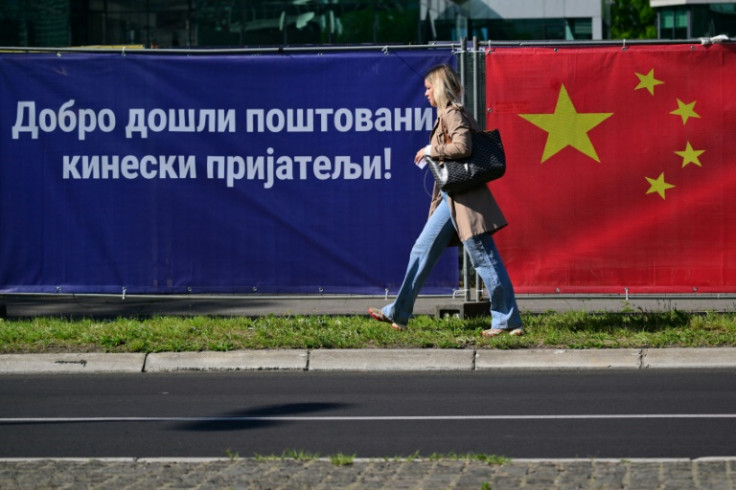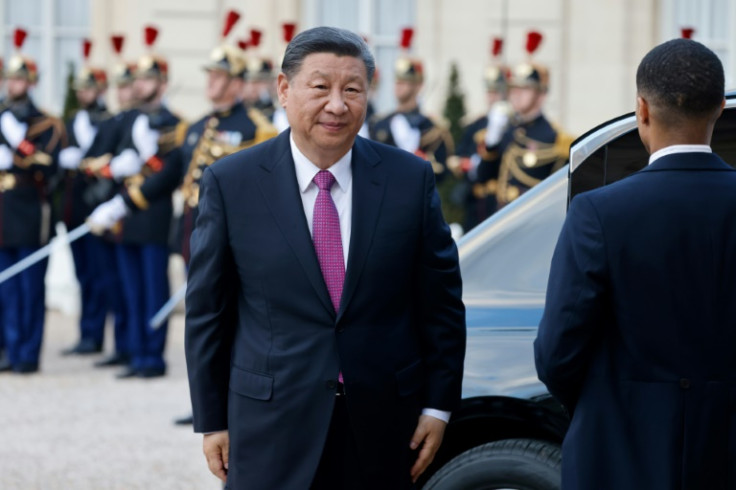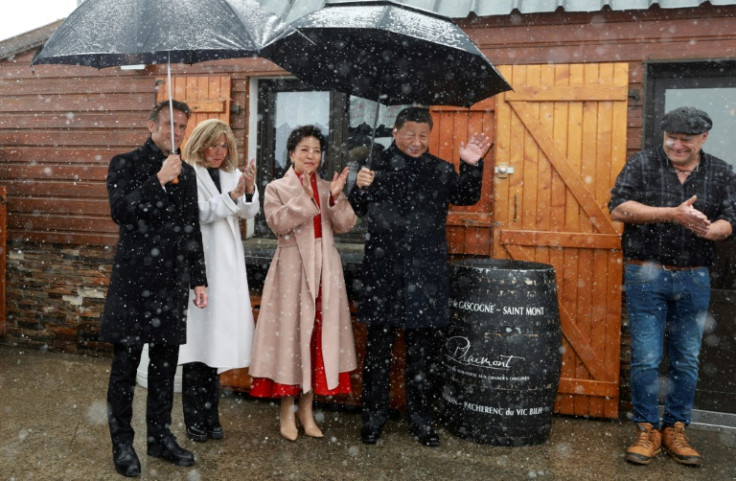China's Xi In Serbia For Talks To Boost Economic Ties

Chinese President Xi Jinping will hold talks with his Serbian counterpart in Belgrade on Wednesday, as Beijing seeks to deepen its political and economic ties with friendlier countries in Europe.
China has poured billions into Serbia and neighboring Balkan countries, particularly into mining and manufacturing, and last year Beijing and Belgrade signed a free trade agreement.
Xi arrived in the Serbian capital Tuesday night after a state visit to France that saw sometimes robust exchanges with President Emmanuel Macron on topics including trade and China's continued close ties to Russia despite the Ukraine war.
But the other two countries chosen by Xi for his first trip to Europe since 2019 -- with Hungary as the final stop after Serbia -- are seen as among the most sympathetic to Moscow in Europe.
In Belgrade, the Chinese leader will meet President Aleksandar Vucic for talks on Wednesday, before heading to Budapest.
Serbian finance minister Sinisa Mali told state broadcaster RTS that discussions Wednesday would centre on "a great project".
"We are aiming to attract a major investment from China in a very promising area," he said Tuesday, adding "I won't reveal our cards at this moment."
Streets in the Serbian capital were decked out with Chinese flags for the visit, along with posters and billboards that proclaimed a "warm welcome" to "Chinese friends".
Xi's visit to Belgrade will also coincide with the 25th anniversary of the 1999 US bombing of the Chinese embassy there, which killed three people.
The embassy was hit during a months-long, US-led NATO campaign targeting Serbian security forces who were waging a brutal war against ethnic-Albanian insurgents in Kosovo.
The US later apologised, saying that outdated maps had led the pilot to strike the wrong target.
On Tuesday, Xi wrote in Serbian daily Politika that NATO had "flagrantly bombed the Chinese embassy in Yugoslavia", warning that China would "never allow such tragic history to repeat itself".
He also hailed the "ironclad friendship" between China and Serbia, which he said was "forged with the blood of our compatriots".
Stefan Vladisavljev, programme director at the Foundation BFPE for a Responsible Society, said that the date of the visit meant it will have "significant symbolic importance".
"The focus is also expected to be on promoting existing cooperation between the two countries, and announcing projects that they can implement together in the future," he added.
Serbs questioned in central Belgrade said they welcomed Xi's visit.
"I think it's an excellent thing, this visit from the president of one of the most powerful countries in the world," 67-year-old Stojan Vidovic, a retiree, told AFP.
"It's fantastic for us," agreed 69-year-old Dijana Radic, a former translator. She said she hoped there would be "results from this visit, something good for both parties".
The first leg of Xi's visit in France saw meetings with Macron and EU Commission President Ursula von der Leyen urging Xi not to allow the export of any technology that could be used by Russia in its invasion of Ukraine and to do all it could to end the war.
Xi for his part warned the West not to "smear" China over the conflict and also hit back at accusations that Chinese overcapacity was causing global trade imbalances.
Europe is concerned that while officially neutral over the Ukraine conflict, China is essentially backing Russia, which is using Chinese machine tools in arms production.
After meeting with Vucic, Xi will go to Hungary, where China has invested heavily in vast battery and electric vehicle (EV) manufacturing plants.



© Copyright AFP 2025. All rights reserved.





















